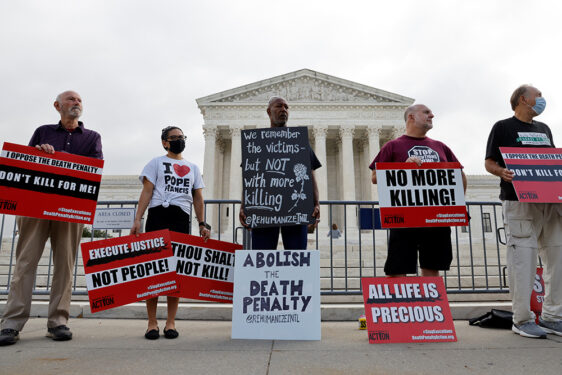
WASHINGTON — Almost all of Louisiana’s death row prisoners pleaded with Gov. John Bel Edwards June 13 to grant them a life sentence without the possibility of parole.
The clemency petitions were filed by 51 of the state’s 57 death row inmates and sent to the Louisiana Board of Pardons and Committee on Parole along with Edwards, a Catholic who has publicly voiced his opposition to the death penalty.
The applications point out systemic flaws in the state’s death penalty, citing racial disparity, the number of death row inmates with intellectual disabilities, and evidence of prosecutorial misconduct.
“Louisiana cannot get the death penalty right,” said Cecelia Kappel, executive director of the Louisiana Capital Appeals Project, which led a group of attorneys representing death row prisoners in filing the requests.
“Looking at these cases collectively makes it clear that the system is fundamentally broken,” she added.
In April, Edwards, who is term-limited and cannot run for governor again, called on state legislators to do away with the death penalty.
In his address opening the spring legislative session in Baton Rouge, he said: “Our criminal justice system is far from perfect. It is wholly inconsistent with Louisiana’s pro-life values, as it quite literally promotes death.”
The governor was urging state lawmakers to pass a bill that would have abolished the death penalty, which ended up not passing.
Just last year, anti-death penalty advocates, including Sister Helen Prejean, a Sister of St. Joseph and Louisiana native, joined with students and other faith leaders at the state Capitol to support the failed measure to end the death penalty.
“We need to be a real pro-life state. No matter how grave the crime, we can’t entrust the government with the ability to take lives,” Sister Prejean said.
Louisiana is one of 27 states that still uses the death penalty, although no one has been executed in the state since 2010, primarily due to a shortage of lethal injection drugs.
State Attorney General Jeff Landry, who is running for governor and supports the death penalty, said in a June 13 statement that he would oppose the inmates’ clemency applications, saying that they had been “given valid death sentences by juries of their peers.”
For now, the Board of Pardons and Parole will look at each application individually and decide whether to grant a hearing and then give their recommendations to the governor. The process would involve thorough investigations and could take up to a year for an inmate to get a hearing.
New Orleans Archbishop Gregory Aymond said in a statement that he joined “in support of the request to Gov. Edwards to commute the sentences of those on death row to life without parole.
“At the same time,” he added, “we continue to pray for the victims and their families and for their healing and for an end to violence in our communities.”
